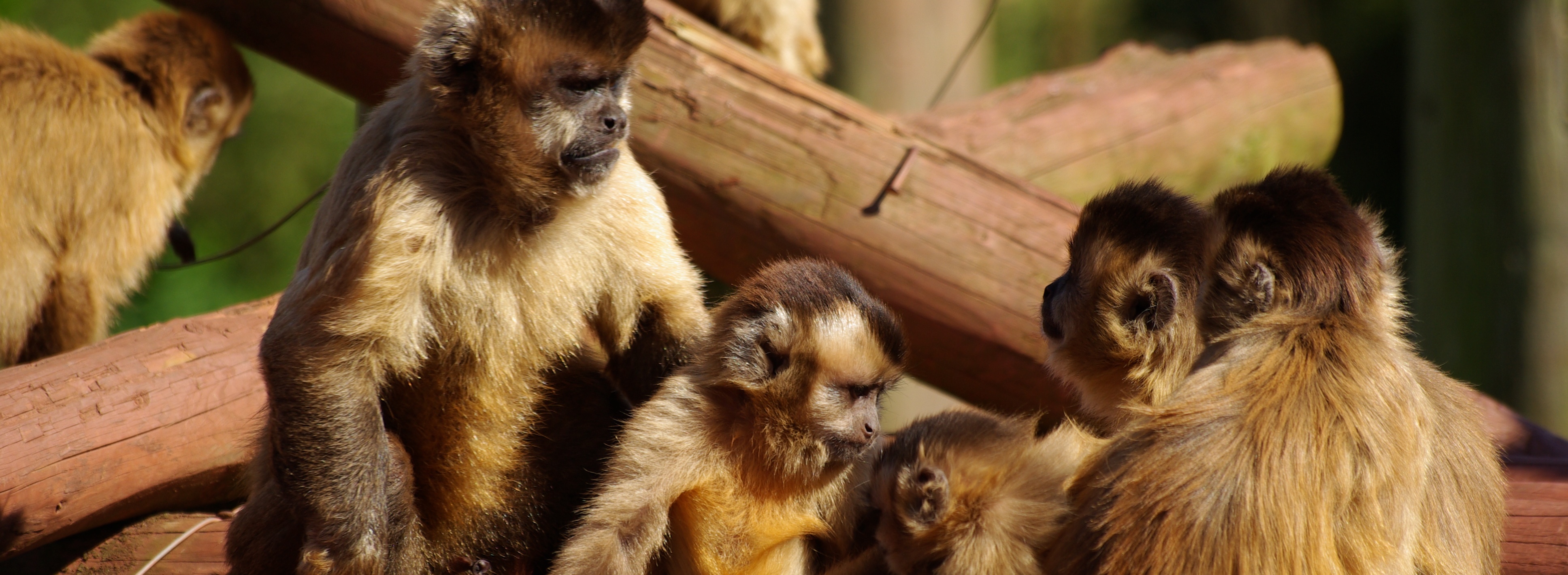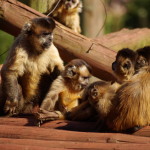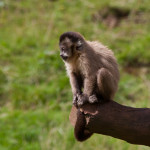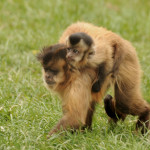Brown Capuchin Monkey
Cebus apella
Habitats: It can live in many different habitats. This species prefers the understory and mid canopy coming down to forage and play. It spends the night wedged between branches in tall trees which must be tall to prevent access from land predators including cats and snakes, they must be comfy, and the leaves of the tree must be large enough for more than one individual to sleep side by side.
Threats: This Capuchin has been extensively hunted for meat and are popular pets in many parts of the world, where they are trained to perform household tasks for people with disabilities and are most commonly known as the monkeys used by “organ grinders”.
Food: Capuchins have a wide variety of calls which are used to contact the group or individuals, end aggressive encounters or alert the group to the presence of danger. Members of a troop give sharp whistling calls at the sight of hawks and eagles, two of the most significant predators of this species. Gestures and facial expressions are also widely used in communication and social grooming is an important form of contact.. Brown Capuchin monkeys are social animals forming groups of 8 to 15 animals.
Information: These monkeys are omnivores, eating not only fruits, nuts, nectar, seeds and buds, but also insects, spiders, bird eggs and small vertebrates. Capuchins living near water will also eat crabs and shellfish by cracking their shells with stones. With the exception of a midday nap, they spend the majority of their day searching for food.
Range: This Capuchin has the largest range of all the New World Primates and is only found in South America, mainly in Northwest Brazil and the Amazon Basin.
Conservation: Our charity The Wildlife Protection Foundation funds a primate conservation project in Colombia; the “Ecosantafe” Red Howler Monkey Conservation Project. To find out more go to http://www.wildlifeprotection.info











